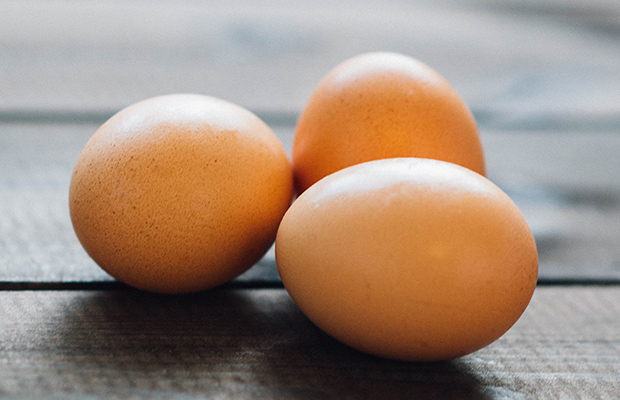
For Kristin Deiss, it’s always been about the animals. She embraced a vegetarian diet after spending time with chickens at her grad school professor’s house. She became a vegan after driving by a truck transporting chickens on a California highway. “They were just jammed one on top of the other. My heart broke and I started crying.”
But every now and then, the LA-based Reiki master and dancer really craves an egg. “I just like the taste of them,” says Deiss. “I’ll make the exception when I know it’s from a company or person that takes care of their animals.”
Deiss is among a growing number of people who’ve quit burgers, dairy and cheese for a plant-based way of eating, but can’t seem to give up that Sunday morning omelet or egg sandwich. Just check out the nearly 6,000 photos tagged #veggan on Instagram. For these ‘veggans’ (that’s vegan plus eggs), their choice stems from a variety of reasons, from wanting to supplement their diet with additional protein to convenience to the fact that, like Deiss, they just really like eggs.
So why are more and more vegans choosing to incorporate eggs into their diet? Here’s the scoop on the veggan diet, the benefits of eggs and how many eggs you really should eat in a day.
RELATED: Is a Vegan Diet the Best Way to Lose Weight?
Why the Egg-ception? The Vegan Diet, Amended
There’s no denying the health benefits of following a plant-based diet. One study found that vegans tend to be thinner, have lower total and LDL cholesterol, and have lower blood pressure, even when compared to other vegetarians. And a vegan diet may help lower the risk of cardiovascular disease and cancer. Another study showed that vegans lost more weight compared to other eating styles.
Despite these advantages, plant-based diets do fall short in some areas. The nutritional powerhouse inside that delicate eggshell can help to bridge the gap. “Vegan diets are typically low in iron and vitamin B12, which is found only in animal products,” says Alissa Rumsey, Registered Dietician and Spokesperson for the Academy of Nutrition and Dietetics.
Whole eggs, however, can deliver that B12 and iron, and provide six to seven grams of protein per egg, according to Rumsey. The yolk itself is also rich in nutrients such as vitamins A, D, E and K, carotenoids and essential fatty acids. Not bad for a tiny, two-ounce egg.
RELATED: Egg Whites or Whole Eggs: Which Are Healthier?
While purists may hotly contend the addition of eggs, a less-strict approach can be more sustainable for some. “The main reason I find that people give up vegan diets is because they feel there is a lack of options, and struggle with eating only plant-based protein like legumes, nuts and seeds,” says Rumsey. “For those people who want to eat a mainly plant-based diet, but want some flexibility, adding eggs can be a good option.”
Still, Rumsey notes that putting an egg on it may not meet all of your dietary needs. Vegans and veggans alike should consider adding a sublingual B12 supplement to their routine, she says.
RELATED: 12 Energy Boosting Recipes Rich in Vitamin B
For Deiss, while her egg-ception comes down to personal preference, her concern for the welfare of animals — what prompted her to switch to a vegan diet in the first place — is always top of mind. Her preferred egg layers? The well-tended-to chickens in her boyfriend’s parents’ backyard. Or, she gets her eggs through a local farm box subscription, where she can also visit the farm and meet the farmers raising the animals. When Deiss purchases from the store, she researches companies thoroughly, looking for information on how the farmers treat their animals, how the animals are transported and how they live.
One Egg, Two Eggs or Three?
If you’re pondering going veggan, or if you just love your eggs, be sure to keep your intake in check. Rumsey says two to three eggs per day are OK within an overall healthy diet.
And concerns about the link between eggs and cholesterol? “While eggs are high in cholesterol, research shows that the dietary cholesterol is less likely to affect your blood cholesterol levels compared to animal proteins that are high in saturated fat,” says Rumsey. “The key is balance and including more plant-based foods like vegetables, whole grains, legumes, nuts and seeds — all of which [can help] lower cholesterol levels.”
RELATED: 6 Whole-Grain Bowls That Taste As Good as They Look
As for which eggs to buy at the store, Rumsey has a few guidelines to follow. While there is no standardized definition for labels like pastured, free-range and cage-free, she recommends pastured eggs for the extra nutrients. Her next-best choices: omega-3 enriched eggs, then either cage-free or free-range eggs. “Even if these aren’t an option, I recommend conventional eggs as they are still a very healthy and nutrient-rich food,” she says.
